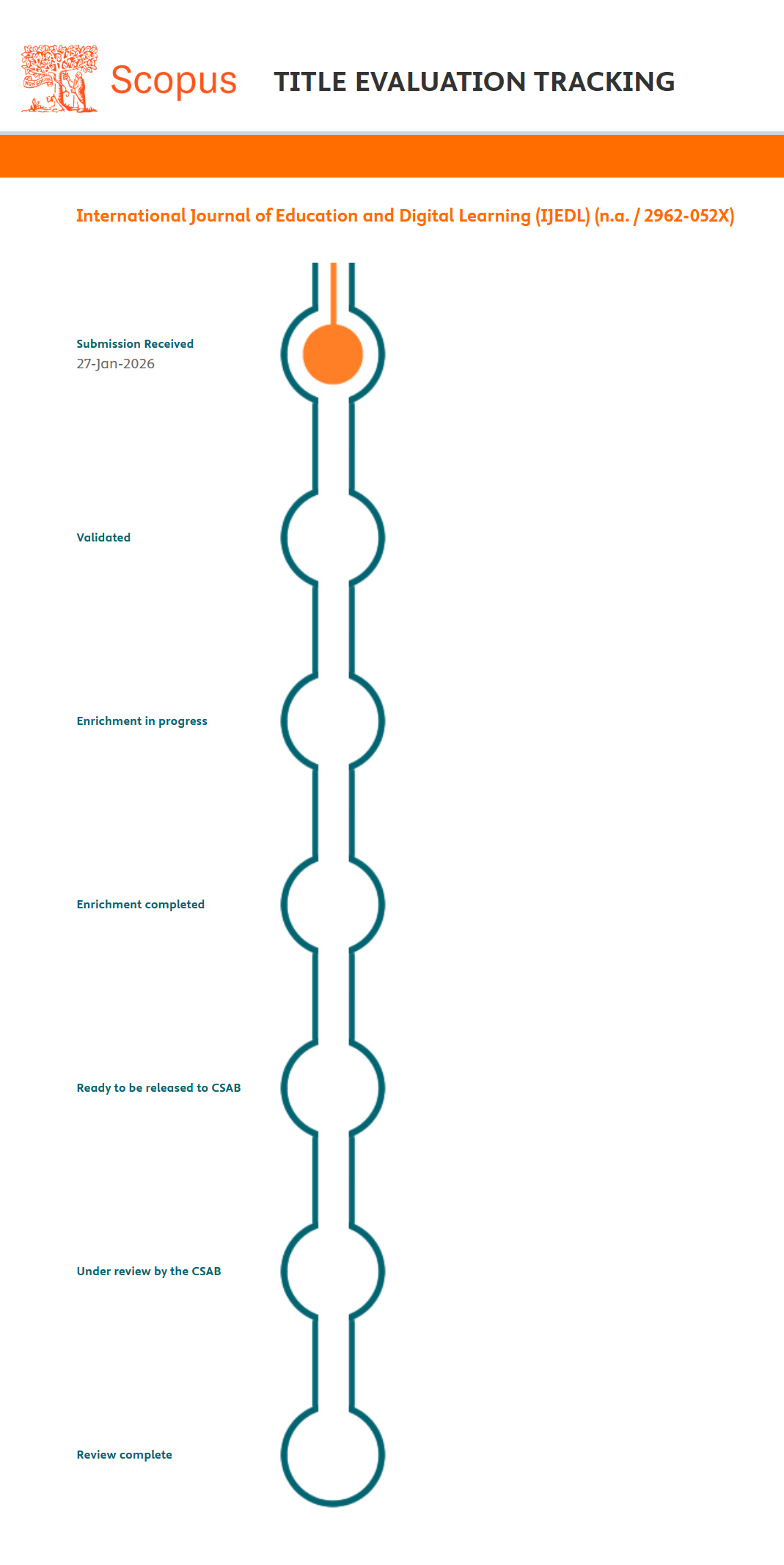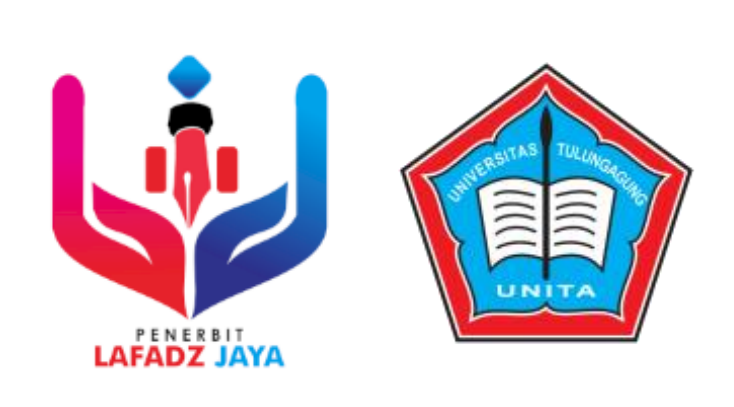Innovation of Fiqh Learning Methods Through Digital Educational Games
DOI:
https://doi.org/10.47353/ijedl.v2i3.187Keywords:
Learning innovation, Fiqh, digital educational games, learning methods, educationAbstract
This study aims to develop and evaluate the effectiveness of Fiqih learning method innovation through digital educational games. In the rapidly evolving digital era, conventional learning approaches are often no longer adequate to attract students' interest and attention. Therefore, this study proposes the use of digital educational games as an alternative method of Fiqh learning, which is expected to increase students' motivation to learn and understand Fiqh materials. This study uses the library research method. Data is collected through observation and documentation, then analyzed qualitatively and quantitatively. The results of the study show that the use of digital educational games in Fiqh learning significantly increases students' interest in learning and understanding. In addition, students showed a positive response to the latest method, which was considered more interesting and interactive compared to conventional learning methods. These findings show that digital educational games have great potential as an innovation in Fiqh learning, and can be widely applied to improve the quality of education in the digital era.
Downloads
References
Abdullah, M. A. (2012). Epistemologi Keilmuan Kalam dan Fikih dalam Merespon Perubahan di Era Negara-Bangsa dan Globalisasi (Pemikiran Filsafat Keilmuan Agama Islam Jasser Auda). Media Syari’ah : Wahana Kajian Hukum Islam dan Pranata Sosial, 14(2), 123. https://doi.org/10.22373/jms.v14i2.1871
Ali, M. K., Ali, A. M., & Hasanah, A. (2024). Pengembangan Game Edukasi Interaktif Perhitungan Waris dalam Pendidikan Agama Islam Menggunakan Scratch. Indo-MathEdu Intellectuals Journal, 5(4), 4373–4386. https://doi.org/10.54373/imeij.v5i4.1635
Ambarwati, D., Imron, M., Meditama, R. F., & Assidiq, D. U. (2022). Inovasi Bahan Ajar Digital Tentang Pendidikan Anti Korupsi Berbasis Kurikulum Merdeka dalam Perspektif Islam. Risalah: Jurnal Pendidikan dan Studi Islam, 8(4).
Bandura, A. (1977). Self-efficacy: Toward a Unifying Theory of Behavioral Change. Psychological Review, 84(2), 191–215.
Blenkhorn, D., & Fleisher, C. (2013). Matching Intelligence Teaching Methods with Different Learners’ Needs. Journal of Strategic Security, 6(3), 61–72. https://doi.org/10.5038/1944-0472.6.3.6
Creswell, J. W. (2009). Research Designe Qualtative, Quantitative, and Mixed Methode Approaches. Sage.
Fauzian, R. (2020). Pengantar Psikologi Perkembangan. Jejak Publisher.
Frank, J., Salsbury, M., McKelvey, H., & McLain, R. (2024). Digital Equity & Inclusion Strategies for Libraries. The International Journal of Information, Diversity, & Inclusion, 5(3), 185–205.
Hastari, R., & Maawiyah, A. (2022). Kreatifitas Guru dalam Mengembangkan Inovasi Pembelajaran Pada Materi Shalat Jum’at di MTSN 5 Aceh Utara. Journal of …, Query date: 2023-07-18 09:18:02. https://journal.iainlhokseumawe.ac.id/index.php/JCII/article/view/1260
Kosasih, A., Supriyadi, T., Firmansyah, M. I., & Rahminawati, N. (2022). Higher-Order Thinking Skills in Primary School: Teachers’ Perceptions of Islamic Education. Journal of Ethnic and Cultural Studies, 9(1), 56–76. https://doi.org/10.29333/ejecs/994
Laily, I. M., Astutik, A. P., & Haryanto, B. (2022). Instagram sebagai Media Pembelajaran Digital Agama Islam di Era 4.0. Munaddhomah: Jurnal Manajemen Pendidikan Islam, 3(2), 160–174. https://doi.org/10.31538/munaddhomah.v3i2.250
Maiti, M., & Priyaadharshini, M. (2024). Evaluation of the experiences of learners and facilitators with ICT within the realm of higher education. Cogent Education, 11(1), 2355377. https://doi.org/10.1080/2331186X.2024.2355377
Mastoah, I., Ms, Z., & Sumantri, M. S. (2022). Meningkatkan Literasi Digital Menggunakan Media Game Edukasi Kreatif: Meningkatkan Literasi Digital. Ibtida’i : Jurnal Kependidikan Dasar, 9(1), 69–80. https://doi.org/10.32678/ibtidai.v9i1.6316
Mawardi, A. (2023). Edukasi Pendidikan Agama Islam dalam Pemanfaatan Sumber-Sumber Elektronik pada Siswa Madrasah Ibtidaiyah. Journal on Education, 6(01), 8566–8576.
Nasution, A., Siregar, R., & ... (2021). Hubungan Persepsi Siswa Tentang Kepribadian Guru Fiqih Dengan Minat Belajar Siswa Di Madrasah Aliyah Al Washliyah Bandar Rejo Kecamatan Bandar Masilam …. ALACRITY: Journal of …, Query date: 2023-07-04 15:14:31. https://lpppipublishing.com/index.php/alacrity/article/view/35
Ninaus, M., & Nebel, S. (2021). A Systematic Literature Review of Analytics for Adaptivity Within Educational Video Games. Frontiers in Education, 5, 1–16. https://doi.org/10.3389/feduc.2020.611072
Rahmatika, A. W., & Nadlir, N. (2023). Kreativitas Guru dalam Mengembangkan Media Berbasis Digital pada Fiqih Kurikulum Merdeka di MI. Ideguru: Jurnal Karya Ilmiah Guru, 8(3), 763–768. https://doi.org/10.51169/ideguru.v8i3.685
Saputri, F. H., & Putra, G. A. I. A. (2023). Pengembangan Media Pembelajaran Sejarah Indonesia Berbasis Game Edukasi Untuk Siswa Kelas 7 Madrasah Tsanawiyah Al-Hafizh Rajeg. G-Tech: Jurnal Teknologi Terapan, 8(1), 16–25. https://doi.org/10.33379/gtech.v8i1.3448
Suaibah, L., & Rahman, T. (2020). Smart Tree Learning Media—We Can Be Based on Android For Arabic Subjects/ Media Pembelajaran Pohon Pintar-Kita Bisa Berbasis Android Untuk Matakuliah Bahasa Arab. Ijaz Arabi Journal of Arabic Learning, 3(1). https://doi.org/10.18860/ijazarabi.v3i1.8215
Sugiono. (2015). Metode Penelitian Kualitatif. Alfabeta.
Yusnita, E., Prasetiyo, A. E., Hasanah, U., Octafiona, E., & Rahmatika, Z. (2023). Shaping Teenagers’ Moral in the Digital Era: Islamic Education Perspective. Jurnal Intelektual: Jurnal Pendidikan Dan Studi Keislaman, 13(1), 1–15. https://doi.org/10.33367/ji.v13i1.3529
Downloads
Published
How to Cite
Issue
Section
License
Copyright (c) 2024 Zaenal Mukarom, Imam Tabroni, Mohamad Yudiyanto, Acep Komarudin, Abdul Aziz

This work is licensed under a Creative Commons Attribution-ShareAlike 4.0 International License.












